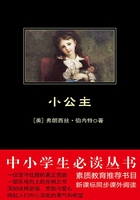Years before, both in his sermons attacking the Augustinians of the strict observance for their over confidence in the merits of good works and penance, and in his commentaries on the Epistles of St. Paul to the Romans and to the Galatians, he had indicated already that his views on man's power to do anything good, and on the means and nature of justification differed widely from those put forward by Catholic theologians. At last, after careful consideration, following the bent of his own inclination and the advice of his friends, he determined to take the field openly by publishing, on the eve of the festival of All Saints, 1517, his celebrated seventy theses against Indulgences.[10]
This document was drawn up with great skill and foresight. Some of the theses were perfectly orthodox and professed great reverence for the teaching of the Church and the authority of the Pope; others of them were open to an orthodox as well as to an unorthodox interpretation;others, still, were opposed clearly and definitely to Catholic doctrine, and all of them were put forward in a way that was likely to arrest public attention and to win the support of the masses.[11] They were affixed to the doors of the university church in Wittenberg, and copies of them were spread broadcast through Germany. Before a week had elapsed they were discussed with eagerness in all parts of the country, and the state of feeling became so intense that Tetzel was obliged to discontinue his mission, and to retire to Frankfurt, where under the direction of Wimpina, he set himself to draw up a number of counter theses which he offered to defend.
The circumstances of the time were very favourable to a campaign such as Luther had initiated. The princes of Germany and even some of the bishops made no secret of their opinion that indulgences had been abused, and many of them were anything but displeased at the step that had been taken by the Wittenberg professor. The old opposition between the Teuton and the Latin was growing daily more marked owing to the violent and abusive language of men like Ulrich von Hutten, who posed as German patriots; while the Humanist party, roused by the attacks made upon Reuchlin by the Dominicans of Cologne, backed by the Scholastic Theologians, were not sorry to see their opponents challenged in their own special department, and obliged to act on the defensive. The knights or lower nobles, too, who had been deprived of many of their privileges by the princes, were ready for any scheme of violence in the hope that it might conduce to their advantage; and the lower classes ground down for centuries were beginning to realise their own strength, partly owing to the spread of secret societies, and were willing to lend a ready ear to a leader who had given expression to views that were coursing already through their minds.
From all parts of Germany letters of congratulation poured in upon Luther. Many of these came from men who had no desire for a religious change, but who thought that Luther's campaign was directed only against abuses in the Church. From the Humanists, from several of the professors and students of Wittenberg, and even from the superiors of his order he received unstinted praise and encouragement. At least one of the bishops, Lorenz von Bibra of Wurzburg, hastened to intercede for him with Frederick the Elector of Saxony, while none of the others took up an attitude of unflinching opposition. Tetzel, who had been forced to abandon his work of preaching, defended publicly at Frankfurt on the Maine a number of counter theses formulated by Conrad Wimpina. To this attack Luther replied in a sermon on indulgences in which he aimed at expressing in a popular style the kernel of the doctrine contained in his theses. Sylvester Prierias, the master of the Sacred Palace in Rome, to whom Luther's theses had been forwarded for examination, published a sharp attack upon them,[12] and was answered in Luther's most abusive style. The most distinguished, however, of the men who took the field against him was John Eck,[13]
Professor of Theology and Vice-Chancellor of the University of Ingolstadt. He was a man well versed in the Scriptures and in the writings of the Fathers, a ready speaker and an incisive writer, in every way qualified to meet such a versatile opponent. While on a visit with the Bishop of Eichstatt he was consulted about Luther's theses, and gave his opinion in the /Obelisks/ on the dangerous character of the teaching they contained. The /Obelisks/ was prepared hastily and was not intended for publication, but it was regarded as so important that copies of it were circulated freely even before it was given to the world. Luther replied in the /Asterisks/, a work full of personal invective and abuse. A Dominican of Cologne, Hochstraten, also entered the lists against Luther, but his intervention did more harm than good to the cause of the Church by alienating the Humanist party whom he assailed fiercely as allies and abettors of Luther.
These attacks, however, served only to give notoriety to Luther's views and to win for him the sympathy of his friends. His opponents made one great mistake. Their works were intended in great part only for the learned, while Luther aimed principally at appealing to the masses of the people. The Augustinians represented him as the victim of a Dominican conspiracy, and to show their high appreciation of his services they selected him to conduct the theological disputation at a chapter meeting held at Leipzig six months after the publication of his theses (1518). At this same meeting Luther defended the view that free will in man and all power of doing good were destroyed by original sin, and that everything meritorious accomplished by man is really done by God. His old opponent at the university, Bodenstein (surnamed Carlstadt from his place of birth), declared himself openly in favour of Luther's teaching on free will, and published a reply to Eck.















